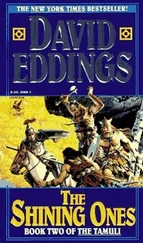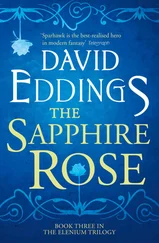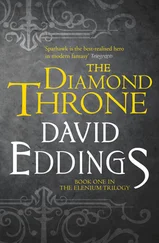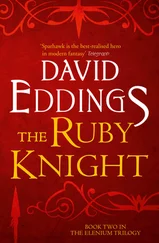David Eddings - The Losers
Здесь есть возможность читать онлайн «David Eddings - The Losers» — ознакомительный отрывок электронной книги совершенно бесплатно, а после прочтения отрывка купить полную версию. В некоторых случаях можно слушать аудио, скачать через торрент в формате fb2 и присутствует краткое содержание. Жанр: unrecognised, на английском языке. Описание произведения, (предисловие) а так же отзывы посетителей доступны на портале библиотеки ЛибКат.
- Название:The Losers
- Автор:
- Жанр:
- Год:неизвестен
- ISBN:нет данных
- Рейтинг книги:5 / 5. Голосов: 1
-
Избранное:Добавить в избранное
- Отзывы:
-
Ваша оценка:
- 100
- 1
- 2
- 3
- 4
- 5
The Losers: краткое содержание, описание и аннотация
Предлагаем к чтению аннотацию, описание, краткое содержание или предисловие (зависит от того, что написал сам автор книги «The Losers»). Если вы не нашли необходимую информацию о книге — напишите в комментариях, мы постараемся отыскать её.
The Losers — читать онлайн ознакомительный отрывок
Ниже представлен текст книги, разбитый по страницам. Система сохранения места последней прочитанной страницы, позволяет с удобством читать онлайн бесплатно книгу «The Losers», без необходимости каждый раз заново искать на чём Вы остановились. Поставьте закладку, и сможете в любой момент перейти на страницу, на которой закончили чтение.
Интервал:
Закладка:
DAVID EDDINGS
The Losers
For Owen,
for Valor and Conspicuous Gallantry. Grafton
CONTENTS
Cover
Title page DAVID EDDINGS The Losers
Fortuna Imperatrix Mundi
Fortuna plango vulnera stillantibus ocellis
Omnia Sol temperat puris et subtilis
In taberna quando sumus
Ave formosissima, gemma pretiosa, ave decus virginum, virgo gloriosa
Estuans interius ira vehementi in amaritudine loquor me menti
O Fortuna, velut Luna statu variabilis
About the Author
By David Eddings
Copyright
About the publisher
Fortuna Imperatrix Mundi
i
Mrs. Muriel Taylor was thirty-eight years old when she found that she was pregnant. Mrs. Taylor was a pale, almost transparent woman of Canadian background, who, until that startling discovery, had lived in a kind of dreamy reverie filled with semiclassical music and the endlessly reworked verses to which she devoted two hours every afternoon and never allowed anyone to read. The pregnancy ran its normal course, although Mrs. Taylor had miscarried twice before. She laid aside her poetry and devoted herself wholly to the life within her, seeming almost to wish at times that she might, like some exotic insect, be consumed from within by it and fall away like a dead husk at the moment of birth.
She labored with the selection of a suitable name for her unborn son (for he would surely be a boy) as she had never before struggled with the surly intransigencies of language, emerging finally with the one name that would lift her still-womb-drowsing infant above the commonplace, beyond that vast, ever-expanding mob of Joeys and Billies and Bobbies and Donnies. She would, she decided, call him Raphael, and having made that decision, she fell back into her drowse.
And in the usual course of time she was delivered of a son, and he was christened Raphael.
Mr. Edgar Taylor, Mrs. Taylor’s husband, was a man best described as gray—his hair, the suits he wore to the office, even his face. Mr. Taylor was an accountant, much more at home with columns of figures than with people, and the sudden appearance of an heir, the product of his somewhat tepid passion, seemed to stun him. He gave up all outside activities so that he might hurry home each night to watch his son, not to touch him or speak to him, but simply to watch in a kind of bemused astonishment this prodigy that he and his wife had somehow wrought.
The Taylors lived in Port Angeles, a small, damp city on the extreme northwest coast. The peninsula below it is given over in large part to a national park, roadless and pristine; and the city thus has an insular character, cut off from the sprawling bustle of Seattle, Tacoma, and the other population centers of the state by a deep, island-dotted sound. All significant travel to and from Port Angeles is by ferry. The nearest major city is Victoria in British Columbia, a curiously European metropolis where Mr. Taylor had traveled on business some years earlier and had met and intermittently courted Mrs. Taylor. In due time they had married and he had brought her back across the twenty-six miles of intervening water to the dank clamminess of Port Angeles with its rain and fog and its reek of green hemlock logs lying low in the salt waters of the bay.
From the beginning Raphael was one of those rare children, touched, it seemed, by a singular grace that gave everything he did a kind of special significance. As an infant he seldom cried, and he passed through the normal stages of early childhood with a minimum of fuss. His mother, of course, devoted her entire existence to him. Long after he had matured to the point where her constant attentions were no longer necessary—or even desired—she was forever touching him, her hand moving almost of its own will to lingeringly caress his face or his hair.
Perhaps because of that special grace or perhaps because of some long-forgotten gene in his makeup, Raphael avoided the pitfalls that almost inevitably turn the pampered child into a howling monster. He grew instead into a sturdy, self-reliant little boy, gracious to his playmates and polite to his elders. Even as a child, however, he was adept at keeping his feelings to himself. He was outgoing and friendly on the surface, but seemed to reserve a certain part of himself as a private sanctuary from which he could watch and say nothing. He did well in school and, as he matured, developed into that kind of young man his infancy had promised—tall, slimly muscular, with glowing, almost luminous eyes and pale blond hair that stubbornly curled in spite of all efforts to control it.
Raphael’s years at high school were a time of almost unbearable pride for Mr. Taylor as the young man developed into that boy athlete who comes along perhaps once in a generation. Opposing coaches wept on those golden autumn afternoons as Raphael, knees high, the ball carried almost negligently in one hand, ran at will through their best defenses. Important men in the lumber company where Mr. Taylor worked began stopping by his desk to talk about the games.
“Great game, Edgar,” they’d say jovially. “Really great.”
Mr. Taylor, his gray face actually taking on a certain color, would nod happily.
“Young Rafe really gave it to them,” they’d say. “He’s a cinch to make all-state this year.”
“We think he’s got a good chance,” Mr. Taylor would say. Mr. Taylor always said “we” when talking about Raphael’s accomplishments, as if, were he to say “I,” it might seem boastful.
For Mrs. Taylor, however, the whole period was a time of anguish. There was always the danger of injury, and with morbid fascination she collected gruesome stories of fatalities and lifelong maimings that occurred with hideous regularity on high-school football fields across the nation. And then there was the fact that all the sportswriters and the disgusting man who broadcast the games over the local radio station had immediately shortened her son’s name to Rafe—a name that smacked of hillbillies or subhuman degenerates slouching along in the shadows and slobbering over thoughts of unspeakable acts. Each time she heard the name, her soul withered a little within her. Most of all, however, she feared girls. As Raphael’s local celebrity increased so did her dread. In her mind
Mrs. Muriel Taylor saw hordes of vacant-minded little trollops lusting after her son, their piggish eyes aflame with adolescent desire and their bubble-gum-scented breath hot and panting as they conspired—each in her own grubby little soul—to capture this splendid young man. Mrs. Taylor had, in the dim reaches of her Canadian girlhood, secretly and tragically suffered such pangs for an oafish campus hero, so that she knew in her heart of hearts to what lengths the predatory adolescent female might go, given such a prize as this most perfect of young men, this—and she used the word only to herself in deepest privacy—this angel.
Young Raphael Taylor, however, avoided those girls his mother most feared as adroitly as he avoided opposing tacklers. This is not, of course, to say that he was celibate. It is merely to say that he devoted his attentions to certain local girls who, by reputation and practice, were in no position to make lasting demands on him. For the most part he avoided those girls who might, by the sacrifice of their virtue, have been able to make some kind of viable claim upon him. Once, though, in the summer of his sixteenth year, there was a girl whom he had deeply and desperately loved; but her family had moved away, and he had suffered, but had been safe.
During the fall of Raphael’s senior year in high school, Mr. Taylor developed a serious shortness of breath. Despite his wife’s urgings, however, he put off visiting the family doctor, maintaining that his condition was just a recurrence of an old bronchial complaint that had plagued him off and on for years.
Читать дальшеИнтервал:
Закладка:
Похожие книги на «The Losers»
Представляем Вашему вниманию похожие книги на «The Losers» списком для выбора. Мы отобрали схожую по названию и смыслу литературу в надежде предоставить читателям больше вариантов отыскать новые, интересные, ещё непрочитанные произведения.
Обсуждение, отзывы о книге «The Losers» и просто собственные мнения читателей. Оставьте ваши комментарии, напишите, что Вы думаете о произведении, его смысле или главных героях. Укажите что конкретно понравилось, а что нет, и почему Вы так считаете.












